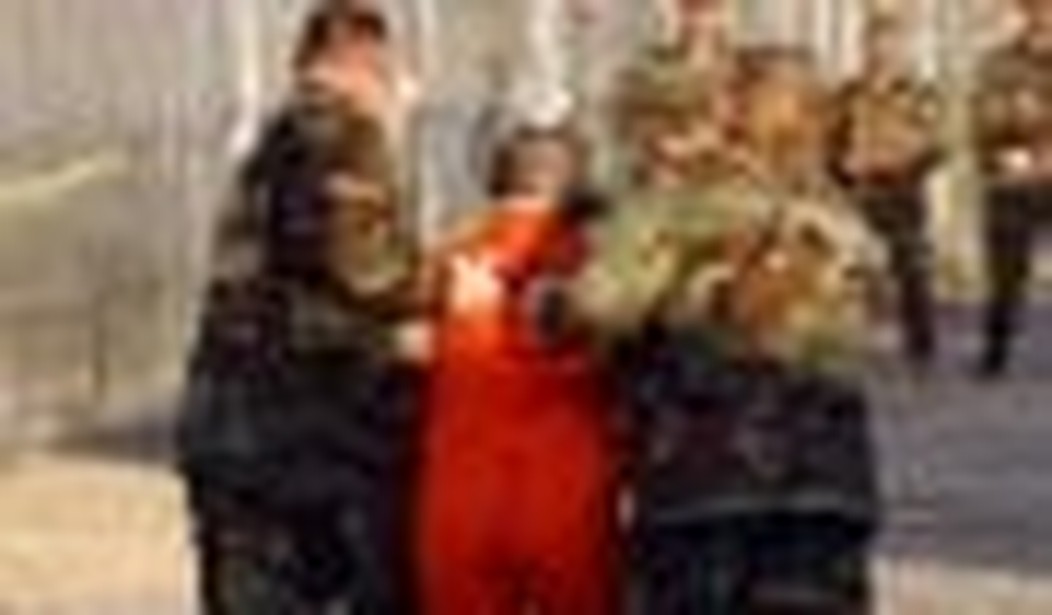With the recent Supreme Court decision granting detainees held at Guantanamo Bay the right to legal counsel challenging their imprisonment, one might look back at the treatment of spies and prisoners of war held stateside during the 1940s for lessons to apply in today’s post-9/11 environment.
First, there was the treatment of Nazi spies entering the U.S. during the summer of 1942. The plan was Operation Pastorius and the story is fascinating, worth the investigation of any World War II buff. George John Dasch would lead it. He was a German who’d served in the German army in World War I, moved to America, and then enlisted in the American army. He would live in New York working as a waiter. Then in the 1930s Dasch decided Germany needed him and returned home. With his American background, he was assigned by the German High Command to lead a group of saboteurs to terrorize America. The grandiose plot was to bomb vulnerable spots along the Chesapeake and Ohio Railroad, destroy bridges in New York City, and blow up a railroad depot in New Jersey and aluminum plants in Tennessee, New York, and Illinois. If possible, he would conduct strikes for the pure terror of it on New York’s Broadway.
Transported by a German U-boat submarine, four of the spies including Dasch walked ashore in Long Island. Four others landed on the beach outside of Jacksonville, Florida.
To make a long story short, Dasch’s “American side” evidently motivated him to tip off the FBI and abort the plan.
The lesson is what the government under FDR did in this case. All eight were put on trial in July 1942 by a military tribunal. Six were executed by electrocution by August 1942. Dasch and a second member were spared the death penalty and eventually returned to Germany after the end of the war.
Second, it would be fair to say few countries ever treated their prisoners of war better than we did. German and Italian prisoners interned in the U.S., many in Arizona, were fed as well or better than we fed our own soldiers. These prisoners had the freedom to indulge in artwork, form musical groups, and have recreation. In fact, many prisoners, especially the Germans, were becoming so friendly with the Americans that their hard-line Nazi members would retaliate with beatings in private and threats of death.
Third, we had the Japanese internment camps, taking hundreds of thousands of Americans of Japanese descent along the West Coast — including Star Trek’s George Takai, otherwise known as Captain Sulu — and holding them for the duration of the war. One cannot imagine a duplication of such an event today.
What lessons can be drawn and applied to Guantanamo, Islamic terrorists, and the modern world?
First, there is a place for swift, cold, hard, brutal action. FDR didn’t keep the spies in place for years hoping to extract every last morsel. He saved the repentant ones and removed the rest. No hesitation. No second-guessing. No question about the strength of America.
Second, there is a place for showing kindness and humanity towards your enemies. Not only did we respect the Geneva Accords; our spirit went beyond the rules of international law with our prisoners of war. Our conduct changed German and Italian opinions about Americans and turned enemies into friends. There have even been reunions of prisoners with guards over the decades. Would such an approach work with Afghan and Iraqi prisoners? Why wouldn’t it? If the Guantanamo detainees were treated far better than expected, given less fuel to feed rumors of torture or anti-Muslim hatred, how would we not be better off? We might even get more information with less effort to defend America.
The broad lesson is to live without illusions yet practice measures consistent with our better historic values. All of these prisoners must be interrogated in ways that are both effective yet consistent with international law. I began with the question of whether the Supreme Court went too far granting rights to those at Guantanamo. I think history will show the ruling was a reasonable response and an indictment of our current approach at Guantanamo Bay. An approach of indefinite incarceration that never commits to charges against the accused. One that behaves as though incentives and rewards are dirty words, “coddling terrorists,” instead of legitimate tools to use in our interests.
If our objective is to drain the feeders of the pool of terrorism, we should at least seek to earn the friendly cooperation of our captives, and not to crush and humiliate their spirits. Therein is one more lesson from the past to apply to our modern world. It is relearning what we did right in World War II in our treatment of prisoners stateside. We need to apply that part of America the world knows and loves best, that part that values all human beings as having rights given by God, to convert Islamic enemies into Islamic friends.









Join the conversation as a VIP Member